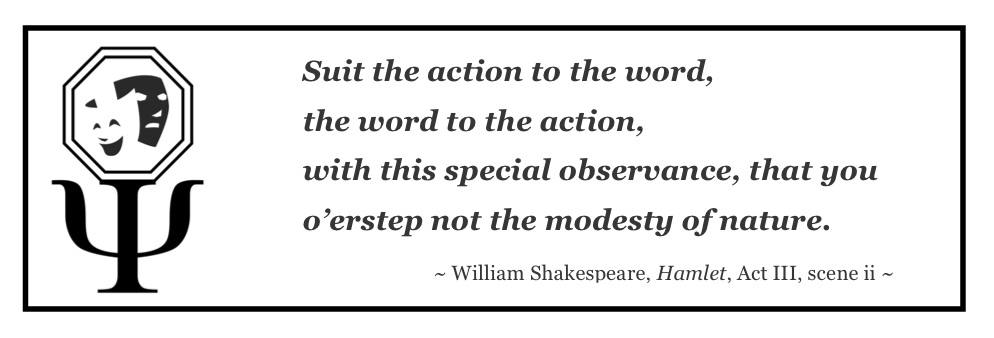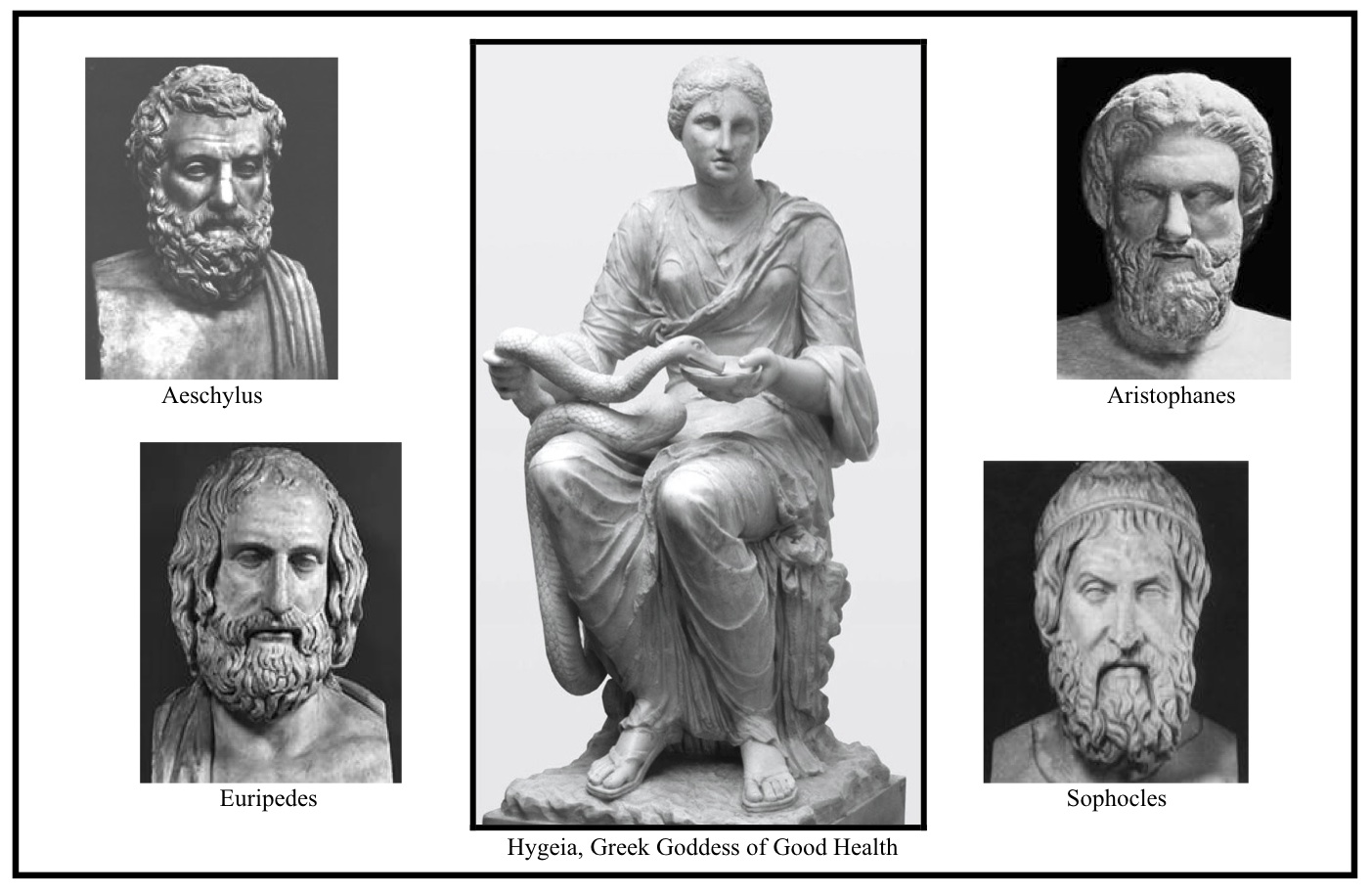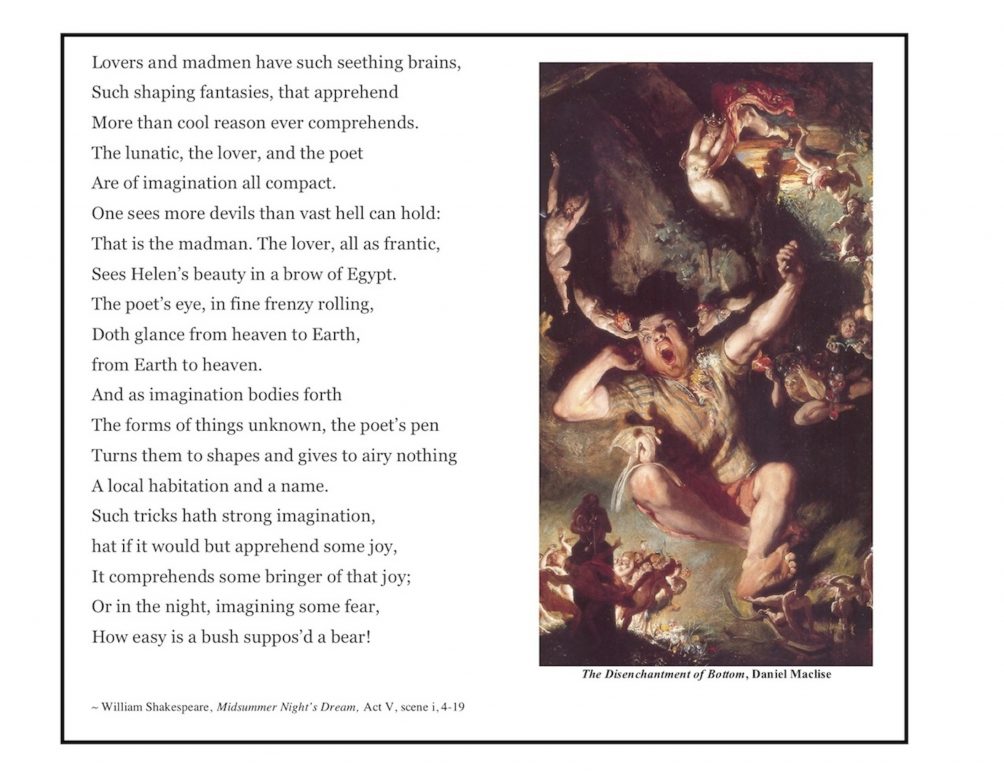
Introducing Psychodramaturgy…
Every theatre artist knows there is far more to theatrical storytelling than mastering sets and props, lines and movement. The successful theatre artist must hone the art of soul. Or, as it was called by the ancient Greeks who gave birth to Theatre, the art of psyche. Those who create theatre cherish any resource that enables them to tell their stories with more psychological authenticity. Certainly, theatre artists must honor the pragmatic context of the stories they are bringing to life — historical setting, logistical details, cultural nuance. But much of what is sought by the artists of theatre is the psychological context of their characters and stories.
What I Offer…
What I offer is an answer to their search — a new resource called psychodramaturgy. If dramaturgy can be summarized as “the exploration and articulation of the context pertaining to the play’s domain,” then psychodramaturgy can be summarized as “the exploration and articulation of the context pertaining to the play’s psychological domain.” Since 2012, I have been developing the practice of psychodramaturgy in partnership with Chris Coleman — formerly the Artistic Director of Portland Center Stage and currently the Artistic Director of the Denver Center for the Performing Arts. Over these years, many cast members have asked, “Why has no one done psychodramaturgy before? It seems like such an important resource for actors!”
The Ancient Greeks Recognized This…
The truth is that someone once did build a bridge between Psyche and Thespis. But they built it so long ago that most of us have forgotten it ever existed. The very same Greeks who gave birth to our theatrical arts also paid great reverence to the relationship between the practice of theatre and the dynamics of Psyche…especially the healing dynamics of Psyche. Consider the fact that the Greeks built their theatres inside their sacred centers of physical and psychological healing, such as the vast healing compound at Epidaurus. And near those ancient theatres, the Greeks built small but important temples dedicated to Hygeia, the Greek goddess in charge of ensuring good health.[1] 
It is evident that the Greeks considered theatre far more than an art of entertainment. For the Greeks, theatre was clearly an art of healing. The stories that unfolded on the ancient Greek stages, like the stories that unfold on our modern stages, invited audience members to recognize themselves in a context of meaning. Evidently, the ancient Greeks knew, as modern psychologists know, that a sense of meaning is essential to healing the afflictions of mind, body, and soul.
[1] Pausanias, Description of Greece (circa 200 A.D.), trans. W. H. S. Jones. Cambridge, MA: Harvard University Press, 1973.
And Shakespeare Recognized This, Too…
Theatre is also one of the first places in which the notion of the unconscious was articulated in a public venue. I’m not just talking about descriptions of manifestations of the unconscious, like dreams and visions and hallucinations, although those do appear in the earliest stories told upon the stage. I’m talking about an explicit description of the actual unconscious — the intricate realm that teems beneath all that we consciously know. Consider the following description, articulated centuries before the birth of Sigmund Freud: 
On every human stage — in ancient Greece, in Elizabethan England, in modern America — we have recognized our passions and horrors, our failures and triumphs. That recognition generates for us a context of community. But more importantly, theatre creates a context of meaning for our lives. If the Swiss psychoanalyst Carl Jung was correct, it is only a sense of meaning that makes our suffering bearable, even precious. The personal sense of meaning that we derive from theatre is, therefore, a potent medicine for mind, body, and soul.
Thespis and Psyche are evidently old friends and devoted partners. The foundation of their relationship is ancient; they were simply waiting for modern psychology to renew it with the bridge of psychodramaturgy that theatre artists can utilize today.